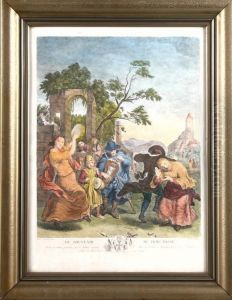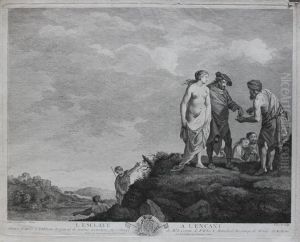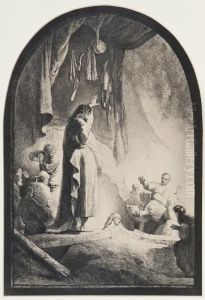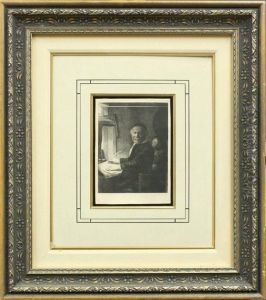Pierre Francois Basan Paintings
Pierre François Basan was a French engraver, publisher, and art dealer, known for his contributions to the world of printmaking in the 18th century. Born in 1723 in Paris, France, Basan was exposed to the art world from an early age, primarily through the influence of his father, François Basan, who was also an engraver. This early exposure provided him with a solid foundation in the techniques and business of engraving.
Basan’s career spanned a period of significant change in the French art world, including the Enlightenment and the years leading up to the French Revolution. He became an accomplished engraver, known particularly for his reproductive engravings, which were prints made after other artists' works. These works played a critical role in disseminating the styles and ideas of prominent painters of his time to a broader audience. Basan's engravings included a wide range of subjects, from portraits to landscapes to historical scenes.
Moreover, Pierre François Basan was also influential as an art dealer and publisher. He compiled and published several important print collections, which further helped to circulate contemporary and classical artworks. His publications included catalogs raisonnés and illustrated books that documented the works of various artists and collections. These efforts were instrumental in the formation of public and critical knowledge about art during his lifetime.
Despite his prominence in the printmaking world, Basan's work, like that of many engravers of his time, was often overshadowed by the fame of the painters whose works he reproduced. Nevertheless, his technical skill and his role in the art market of the 18th century make him a figure of interest in the study of French art history.
Pierre François Basan passed away in 1797, leaving behind a legacy that is reflected in the collections of prints found in many museums and libraries around the world. His contributions to the art of engraving and the dissemination of artistic knowledge remain his most enduring achievements.



